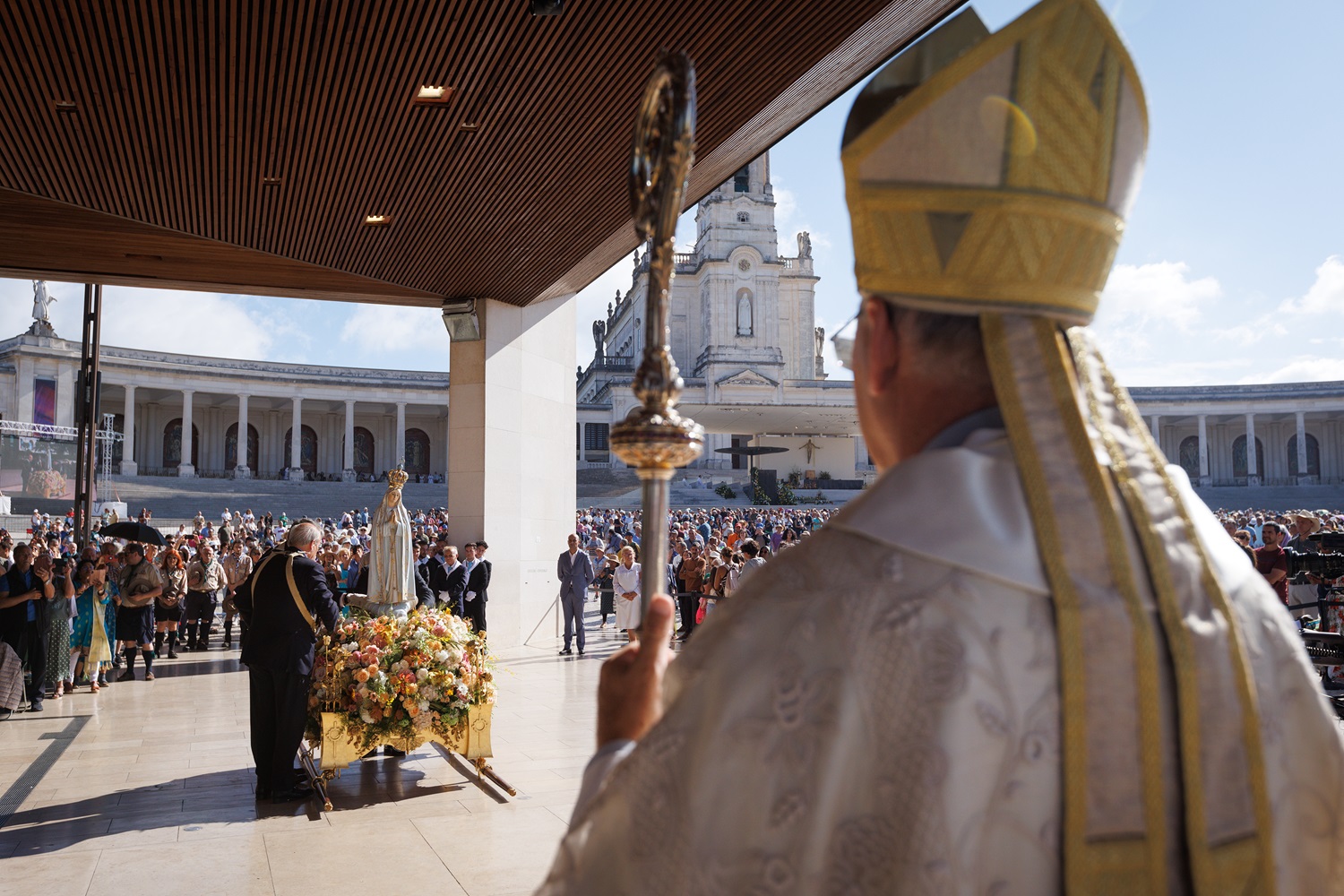13 august, 2024

“Fatima remains a stronghold of faith for migrants, a place of supplication and gratitude”In his homily at the Mass he presided over this morning in the Prayer Area, the Bishop of Coimbra spoke of the dark shadow that is the exploitation of migrants.
“The migrants believe that Our Lady of Fatima helped them to endure the harshness of life and was the help without which they could not keep the faith,” said the Bishop of Coimbra in his homily at the Mass on 13 August. For this reason, men and women from successive generations regularly return to Cova da Iria. “For migrants, Fatima continues to be a stronghold of faith, a place of supplication and gratitude to God, a symbol of trust in the Virgin Mary and commitment to the Gospel,” emphasised Bishop Virgílio Antunes, who presided over this year's International Anniversary Pilgrimage in August. The current national situation continues to be marked by migration. The president of the celebration said that just as young people continue to leave the country, not always “by free choice and free of constraints”, people from other places and cultural and religious backgrounds also come to Portugal. They come to escape poverty or war, in search of new life opportunities that they cannot find where they come from. “Those who arrive also have to face the novelty of the unknown in a foreign country, which is a source of anxiety and, not infrequently, of immense loneliness,” he recalled. Mgr. Virgílio Antunes also referred to Pope Francis' message for the World Day of Migrants and Refugees, in which he spoke of “a guiding light and a home to live in” as essential conditions for a journey of well-being and happiness. But sometimes the light turns into dark shadows and the home becomes a place of rejection. “The world is aware of the existence of many hidden faces that unscrupulously promise paradise to the poor in the peripheries of the world,” said the Bishop of Coimbra. He also recalled that, “behind a few thousand euros or dollars, the faces of those who present themselves as good Samaritans turn out to be the faces of cruel wrongdoers, who leave the disillusioned by the side of the road or abandon them to their fate in the waves of the sea, a prelude to death or to a collision with the harsh reality that awaits them on the shore”. The symbolism of the home, also present in Pope Francis' message, led the president of the celebration to share that sometimes “the home, society, becomes a place of rejection; the community, a place of discrimination; work, a means of exploitation”. Mgr. Virgílio Antunes stressed that “those who have Christ as their light and entrust their lives to Him are committed to hospitality, that is, they are ready to welcome with joy their brothers and sisters into the home that is their country, their culture, their Church, their economy, their work, their community and their friendship”. The same reflection was shared at the end of the celebration by Bishop José Ornelas, who recalled that Mary accompanied three children “to teach us that we must be welcoming and caring guides to those who need us most”. The Bishop of Leiria-Fatima recalled Pope Francis' words on 5 August last year in the Chapel of Apparitions: “this is the image of a mother's house, a house that has pillars and a roof to welcome and shelter those who come”. “Let us pray that our country, our Europe and the world may become a land of welcome, so that everyone may find what they need for their pilgrimage on earth. And above all, let us pray for peace, which is one of the hallmarks of this Shrine,” he concluded. Around 50,000 pilgrims took part in this morning's celebrations, which included the traditional offering of wheat. Four bishops and 90 priests concelebrated. |